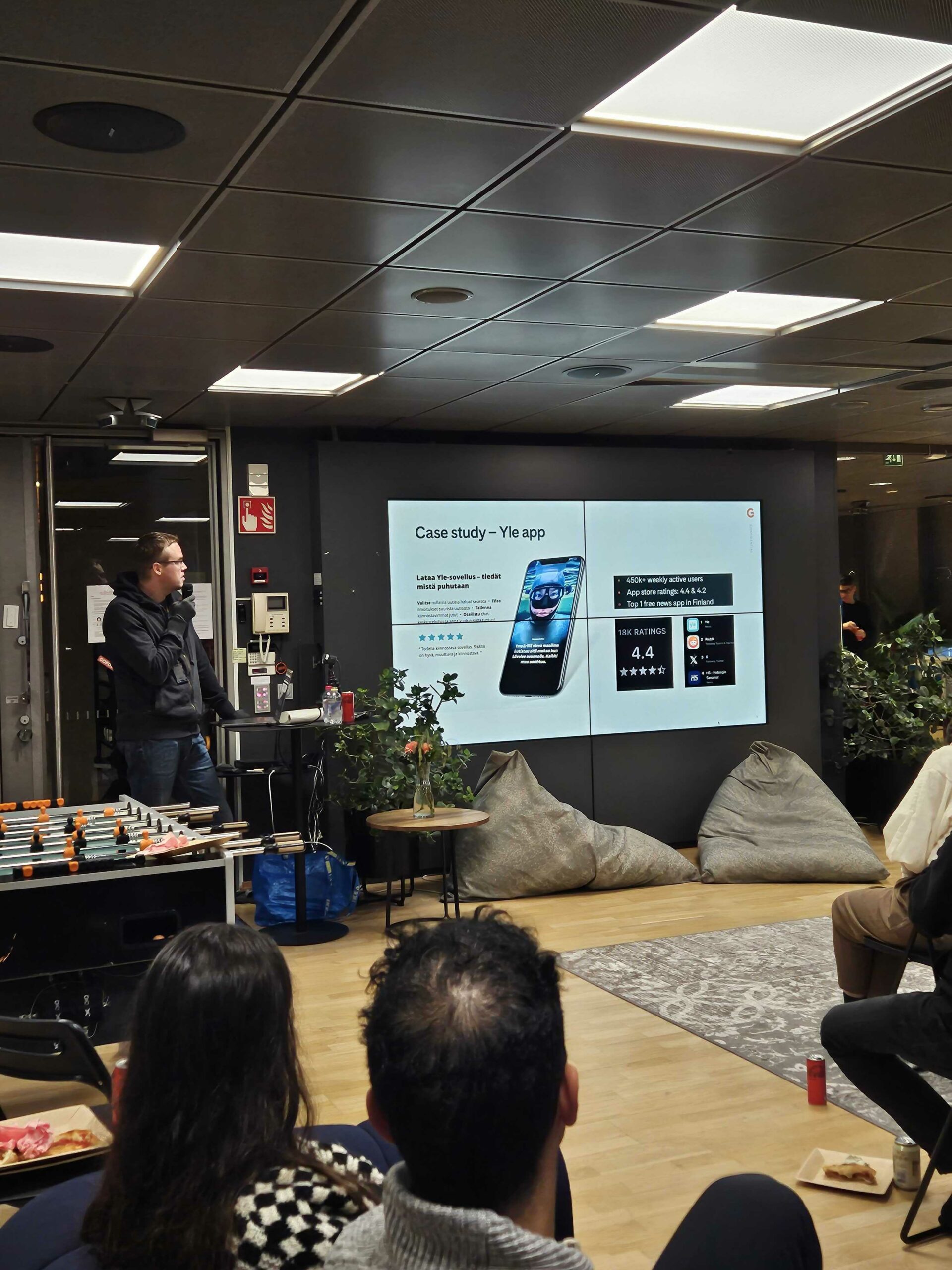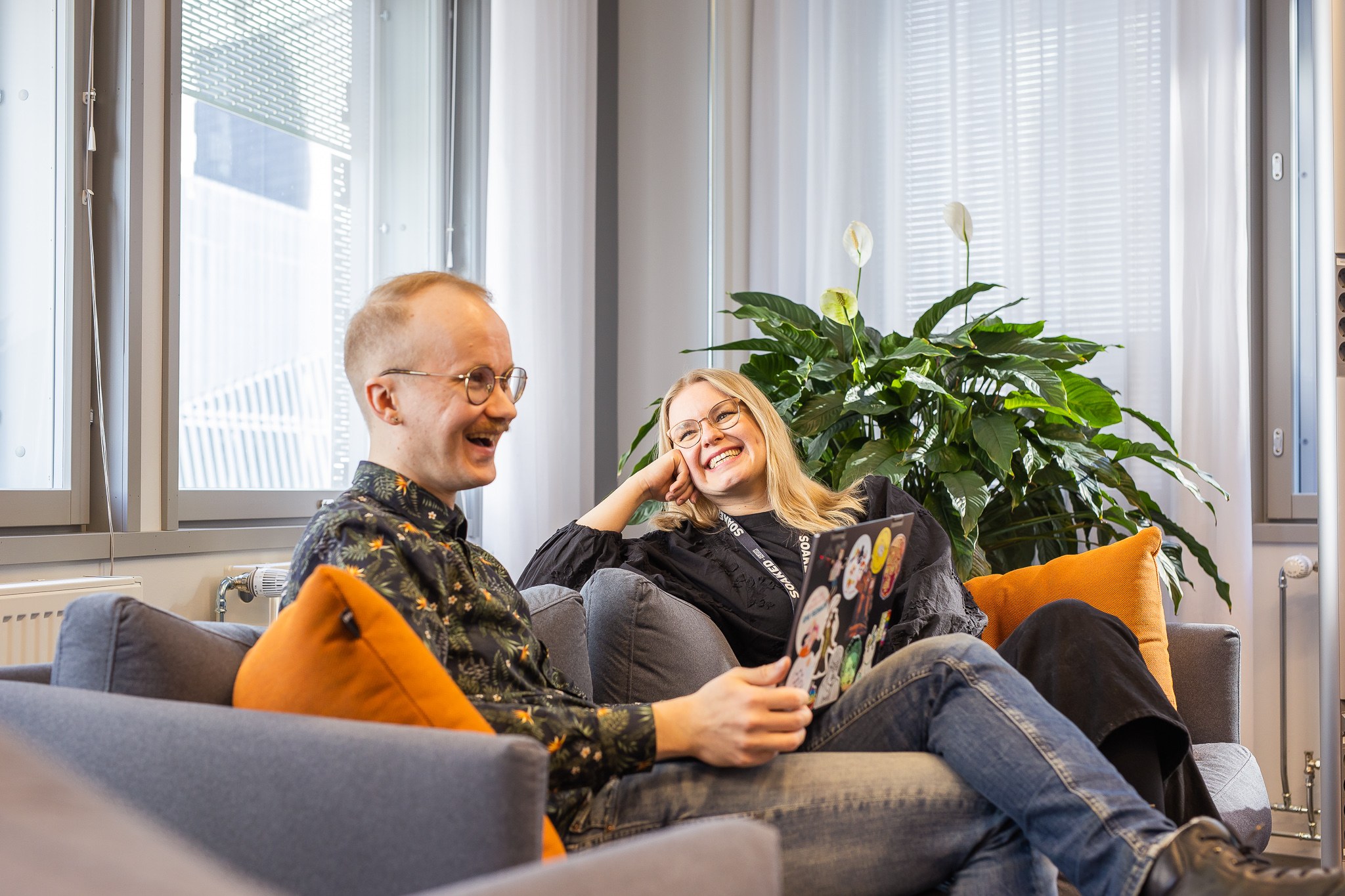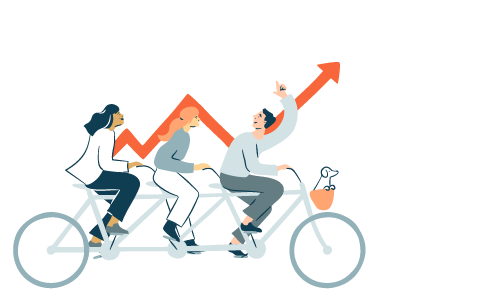Wow, what a weekend! First, our team won “Hackers against exclusion” challenge at Ultrahack and after that Finland won the world ice hockey championship! Ice hockey is cool but you don’t win a hackathon every day so let us tell more about that now.
Our team “Positive Impact AI” Aapo Tanskanen, Milla Siikanen, Janne Högdahl and Eija Vaittinen hadn’t ever participated in any hackathon but the important topic of social exclusion of young men sounded interesting for us so we applied to Ultrahack at the very last minute. We didn’t quite know what to expect nor did we have any ready-made solutions. We did brainstorming beforehand, had tons of different ideas and arrived at the event venue on Friday afternoon packed with excitement, open-minds and eagerness to hack the whole weekend.

We still had a little energy left for a couple of jumps after the weekend of hacking (Image by Wasim Al-Nasser instagram.com/wasimalnasser) (Eija Vaittinen worked and jumped remotely with us)
The challenge
According to the Finnish National Institute for Health And Welfare, men especially have problems with e.g. alcohol, lack of education and unemployment which can lead to social exclusion. How could we utilize AI to prevent exclusion among young men? This was the task set for the hackathon by VAKE, Ministry of Finance and a few other authorities. Our team wanted to tackle this issue by utilizing our diverse backgrounds and know-how from data science, chatbots and service design.
Our solution
At first, we were planning to do data analysis (e.g. clustering) to identify different groups of young men who are excluded or are at risk of getting excluded, to understand different and unique reasons for exclusion and to try and predict those. However, we didn’t have data available for the analysis during the hackathon so we had to pivot quickly.
The material we got indicated that there are many social inclusion services available in Finland. However, after trying to find specific exclusion related public services by ourselves, we realized it was very difficult for us and most likely it is even more difficult for our target group. So we decided that this could be a good problem to solve in the hackathon: how can we match the right person with the right service? The solution we came up with was an AI chatbot that talks with the person analyzes their needs, and suggests suitable services from different sources that could help this individual. Thus, we started developing a few different realistic user stories and the chatbot which would match the needs of the user to available public services. For the hackathon MVP solution, we chose three tracks in which our chatbot was focusing on: unemployment, mental health and loneliness.
During the Saturday morning, we were able to create a demo chatbot focusing on the loneliness track. The conversational chatbot asks (in Finnish) some basic things about the user and then can recommend hobbies and events based on the user’s interests by utilizing the City of Helsinki’s APIs.
[KGVID]/wp-content/uploads/demo1.mp4[/KGVID]
During Saturday afternoon we rehearsed our solution pitch with the Ultrahack judges and mentors and got feedback on how we could develop our solution further before Sunday’s final pitch. During Saturday evening and Sunday early morning we developed other demos where the chatbot focuses on the mental health track and can recommend suitable public services from Suomi.fi API based on the analysis made from the user’s responses.
[KGVID]/wp-content/uploads/demo2.mp4[/KGVID]
Video of the second demo chatbot
Before Sunday’s final pitch we also further developed our concept in the bigger picture to plan how our solution could properly be developed in the long term after the hackathon weekend. The plan included steps like data gathering and analysis to make our chatbot smarter and user studies with our target group to make sure that the bot is user-friendly. At the final pitch, Milla Siikanen delivered an excellent pitch clearly showcasing our solution, its value and the future plan. The judges seemed to be interested in our solution but we weren’t quite sure how well we did because there were also other really good teams with solutions like helping gamers realize and promote their really valuable work-life skills learned from gaming.
Winners announcement
After the final pitches, we had a little time to relax, chat with other teams, consume energy by jumping and eagerly wait for the announcement of the winners.
Much to our surprise, we heard the name “Positive Impact AI” announced as the winner of the Hackers against exclusion challenge and wild celebrations started!

The top three teams in Hackers Against Exclusion challenge (Image by Vedran Brnjetic)

After wild winning celebrations, we barely had energy left to smile
I say: UUUUUULTRAAAA!! you say: HAAAACCKKK!!!
Ultrahack was the first hackathon for all of us and it really left a positive impact on us. The hackathon was really well organized, the event venue was great and there were food, snacks and drinks available during the whole weekend, not forgetting relaxing morning yoga on Saturday (this was super!). Big praise for all the smiling Ultrahack crew members and volunteers behind the event! After this hackathon, we will definitely attend other hackathons.

Morning yoga was essential to energize our hands for hacking (Image by Vedran Brnjetic)
We cannot wait to develop our solution further, hopefully, make it a reality in the near future and make a positive impact by preventing the exclusion of young men!


